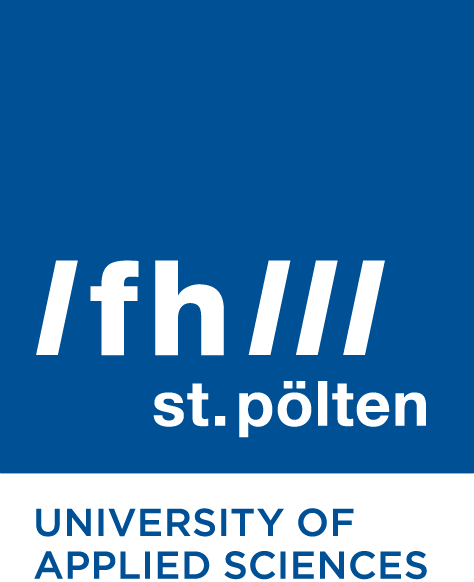Programm
Grußworte und gemeinsamer inhaltlicher Einstieg
Ana Rădulescu, President of IFSW Europe
Bridget Ng’andu, Senior Lecturer in Social Work, University of Kent, United Kingdom
Iain Ferguson, Honorary Professor of Social Work and Social Policy at the University of the West of Scotland and a founding member of the Social Work Action Network
Alicia Kirchner, Social Worker and Governor of the Argentine province of Santa Cruz
- Internationale Soziale Arbeit und Auslandsaufenthalte während des Studiums (Hannah Wolter & Markus Sauerwein (Fliedner Fachhochschule Düsseldorf)
- Migrant*inn*en im System des österreichischen Maßnahmenvollzug (Kathrin Bereiter & Stefan Kitzberger (FH Oberösterreich, Campus Linz))
- Erklär mir die Betriebliche Sozialarbeit in der Schweiz (Janine Winter & Barbara Thalmann (FH St. Pölten))
Panel 1: Anspruch und Realität [Simultanübersetzung]
- Elena Davydova: Older people (60+) as a special social group in need of help amid the pandemic
- Veronika Zegzulková: The concept of international social work in the context of undergraduate education at selected universities
- Sebastian Sierra Barra: Posthumanismus als Anti-Rassismus? Überlegungen zu einem koevolutionären Verständnis in der Sozialen Arbeit
Panel 2: Ursachenbekämpfung oder Symptomlinderung
- Hannah Reich: International Social Work Acting in Crisis – attitude matters (AttiMa)
- S.M. Sajid & Christine Rehklau: Global Response to a global problem: Myth and Reality
Workshop 1: Pro Action Café – The Breakthrough of the Social
Eva Grigori & Michaela Moser
Panel 3: Internationale Soziale Arbeit & Dekolonialisierung
[Simultanübersetzung]
- Marelize Joubert & Stephan Geyer: In pursuit of decolonising social work research: a dialogue on Ubuntu among students from South Africa and England
- Helmut Spitzer: Ubuntu – Afrikanischer Humanismus als Leitmotiv internationaler Sozialer Arbeit? Eine kritische Reflexion
Panel 4: Postkoloniale Soziale Arbeit
- Petra Daňková &Tanja Kleibl: Social Work education and research in the context of postcolonial perspectives
- Sandra Holtgreve: Internationalization and decolonization – different means to the same end?
- Ndangwa Noyoo: After Rhodes Must Fall and Fees Must Fall -What next for decolonising social work in South Africa?
Workshop 2: INPRO – Interprofessionalism in Action – An Interprofessional Teaching Concept for Health Professions in Austria
Ursula Hemetek & Alois Huber
An interactive online gathering and chat concludes our first day. Using wonder.me you can virtually walk around and meet with representatives from the IFSW Europe, use the opportunity to discuss how a global social work is realized or ubuntu is put into practice and have informal chats with colleagues and others.
Gesprächsrunde mit Vertreter*innen verschiedener Organisationen
Wir haben Vertreter*innen verschiedener Organisationen und Generation aus unterschiedlichen Handlungsfeldern und Teilen Österreichs eingeladen, uns im Gespräch Einblicke in ihr politisches Selbstverständnis und ihre konkrete Praxis zu geben.
Welche Grundhaltungen prägen ihre alltägliche Arbeit, wie gelingt es politische Ansprüche in der eigene Praxis umzusetzen, welche Rahmenbedingungen sind dafür förderlich, welche behindern? Welche Spannungsfelder und Fragen ergeben sich? Darüber sprechen wir mit:
- Carola Weiß, Verein Wohnen und Arbeit, Melk (https://wohnenundarbeit.at/)
- Christopher Tupy, Verein Freiräume, Wien (https://www.freiraeume.at/)
- Elfi Oblasser, Zentrum für Jugendarbeit z6, Innsbruck (https://www.z6online.com/)
- Lisa Udl, NINLIL. Empowerment und Beratung für Frauen mit Behinderung, Wien (https://www.ninlil.at/)
- Luzenir Caixeta, maiz – Autonomes Zentrum von & für Migrantinnen, Linz (https://maiz.at/)
- Thiemo-Raoul Bischof, Queer Base. Welcome and Support for LGBTIQ Refugees, Wien (https://friends.queerbase.at/)
Alle Teilnehmer*innen sind eingeladen, nach ersten Gesprächsrunden mit den eingeladenen Vertreter*innen Sozialer Organisation hierzu miteinander in Diskussion zu kommen.
Moderierter Open Space zur Vertiefung der an Tag 1 und Tag 2 besprochenen Themen und zur Entwicklung konkreter (Projekt-)Ideen für eine verstärkt solidarische Soziale Arbeit.
